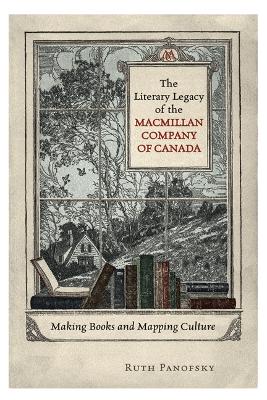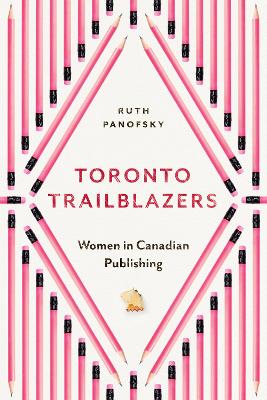Studies in Book and Print Culture
2 total works
Fifth Business and Alligator Pie. Stephen Leacock, Grey Owl, and Morley Callaghan: these treasured Canadian books and authors were all nurtured by the Macmillan Company of Canada, one of the country's foremost twentieth-century publishing houses. The Literary Legacy of the Macmillan Company of Canada is a unique look at the contribution of publishers and editors to the formation of the Canadian literary canon. Ruth Panofsky's study begins in 1905 with the establishment of Macmillan Canada as a branch plant to the company's London office. While concentrating on the firm's original trade publishing, which had considerable cultural influence, Panofsky underscores the fundamental importance of educational titles to Macmillan's financial profile. The Literary Legacy of the Macmillan Company of Canada also illuminates the key individuals -- including Hugh Eayrs, John Gray, and Hugh Kane -- whose personalities were as fascinating as those of the authors they published, and whose achievements helped to advance modern literature in Canada.
Toronto Trailblazers explores the influence of seven key women who, despite pervasive gender bias, helped advance a modern literary culture for Canada.
Publisher Irene Clarke, scholarly editors Eleanor Harman and Francess Halpenny, trade editors Sybil Hutchinson, Claire Pratt, and Anna Porter, and literary agent Bella Pomer made the most of their vocational prospects, first by securing their respective positions and then by refining their professional methods. Individually, each woman asserted her agency by adapting orthodox ways of working within Canadian publishing. Collectively, their overarching approach emerged as a feminist practice. Through their vision and method these trailblazing women disrupted the dominant masculine paradigm and helped transform publishing practice in Canada.
Publisher Irene Clarke, scholarly editors Eleanor Harman and Francess Halpenny, trade editors Sybil Hutchinson, Claire Pratt, and Anna Porter, and literary agent Bella Pomer made the most of their vocational prospects, first by securing their respective positions and then by refining their professional methods. Individually, each woman asserted her agency by adapting orthodox ways of working within Canadian publishing. Collectively, their overarching approach emerged as a feminist practice. Through their vision and method these trailblazing women disrupted the dominant masculine paradigm and helped transform publishing practice in Canada.

